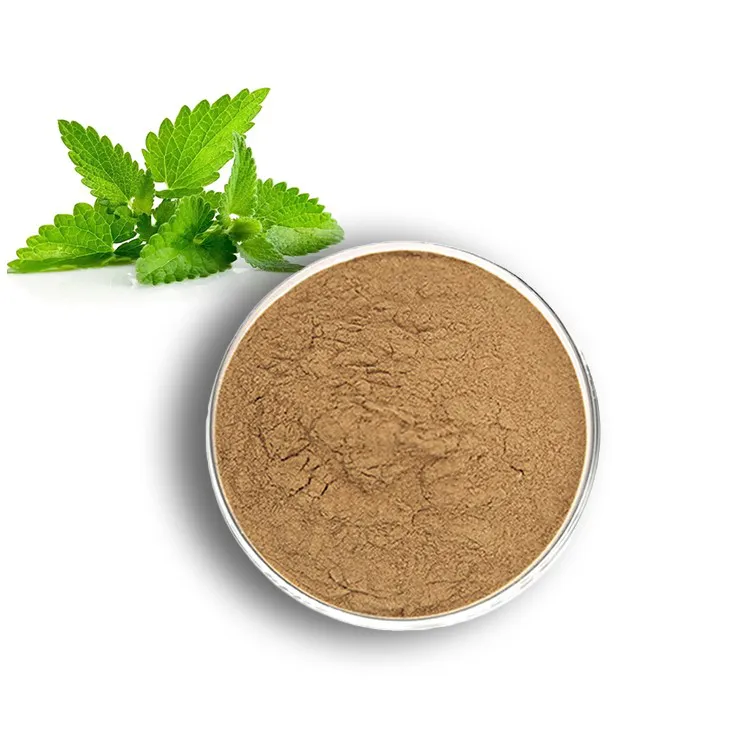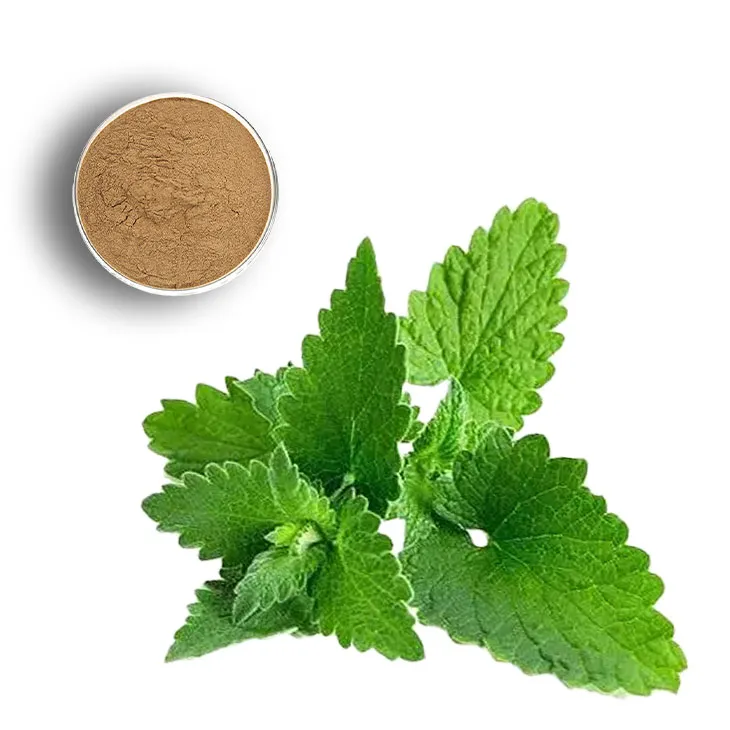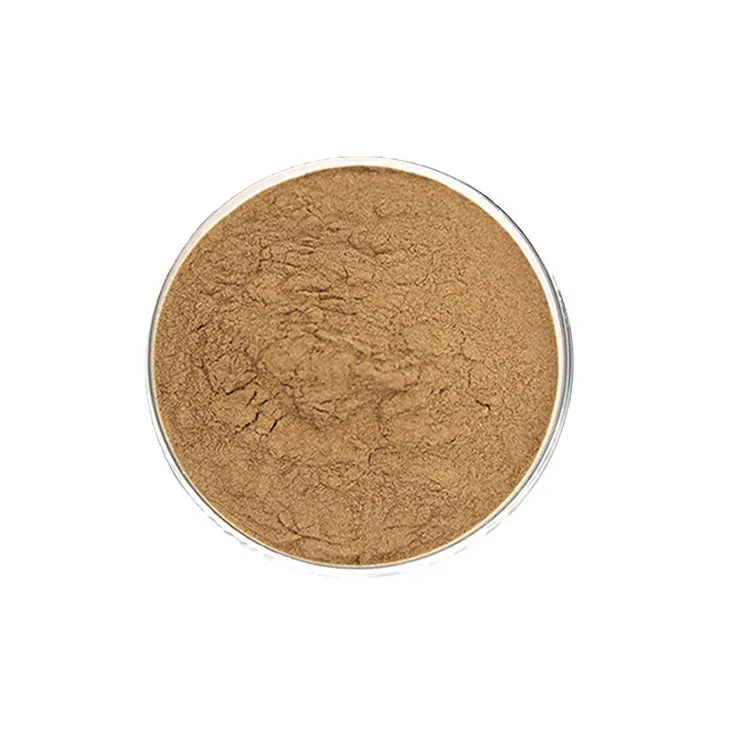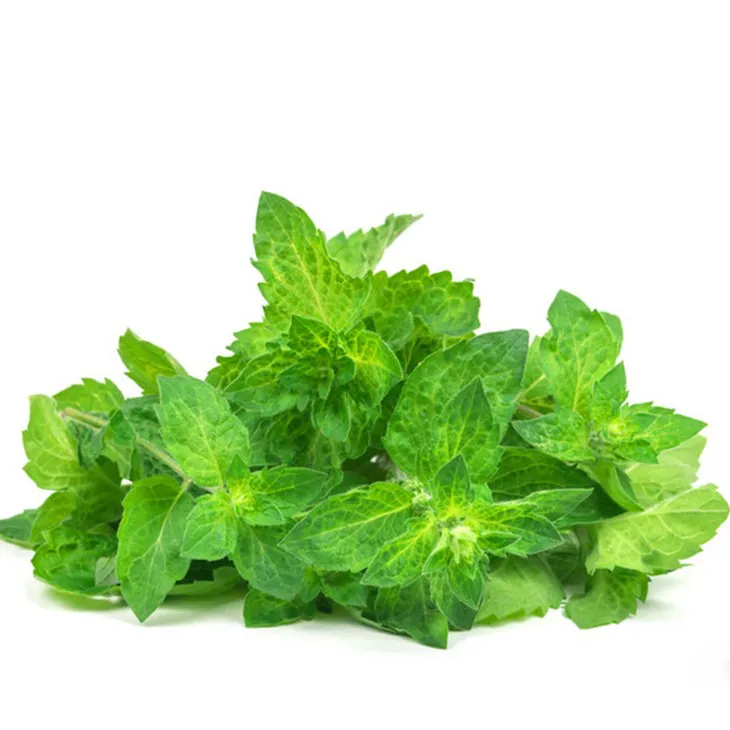- 0086-571-85302990
- sales@greenskybio.com
Emerging Trends and Competitive Strategies in the Lemon Balm Extract Market.
2024-12-13

1. Introduction
The Lemon Balm Extract market has been experiencing significant changes in recent years. With the increasing awareness of natural and herbal products, the demand for Lemon Balm Extract has been on the rise. This extract, derived from the lemon balm plant (Melissa officinalis), has a wide range of applications in various industries, including nutraceuticals, cosmetics, and pharmaceuticals. Understanding the emerging trends and competitive strategies in this market is crucial for companies operating in this sector.

2. Emerging Trends in the Lemon Balm Extract Market
2.1 Growth in the Nutraceuticals Market
The nutraceuticals market has been a major driver of growth for the lemon balm extract market. Nutraceuticals are products that combine the benefits of nutrition and pharmaceuticals. Consumers are increasingly turning to these products to maintain their health and well - being. Lemon balm extract is rich in antioxidants, flavonoids, and other bioactive compounds, which have been shown to have various health benefits. For example, it has been reported to have anti - anxiety, anti - stress, and sleep - promoting properties.
As the demand for natural and functional foods and supplements grows, lemon balm extract is finding its way into a wide range of nutraceutical products. These include dietary supplements, herbal teas, and functional beverages. Manufacturers are also formulating new products with lemon balm extract to target specific health concerns, such as stress management and cognitive health.
2.2 Rising Popularity in Cosmetics
Lemon balm extract is also gaining popularity in the cosmetics industry. Its natural properties make it an attractive ingredient in skincare and haircare products. The extract has anti - inflammatory, antimicrobial, and antioxidant properties, which can help to soothe and protect the skin. It is often used in products such as creams, lotions, and shampoos.
Consumers are increasingly looking for natural and organic cosmetics, and lemon balm extract fits well into this trend. Brands are highlighting the use of natural ingredients like lemon balm extract in their marketing campaigns to appeal to health - conscious consumers.
2.3 Increasing Interest in Herbal Remedies
There is a growing interest in herbal remedies around the world. Lemon balm has a long history of use in traditional medicine, and its extract is now being rediscovered for its potential therapeutic benefits. People are more likely to explore alternative treatments for various ailments, and lemon balm extract is considered a safe and natural option.
For example, in some cases, it may be used as a mild sedative or to relieve digestive problems. This trend towards herbal remedies is expected to further boost the demand for lemon balm extract in the future.

3. Competitive Strategies in the Lemon Balm Extract Market
3.1 Strategic Partnerships
One of the key competitive strategies in the lemon balm extract market is the formation of strategic partnerships. These partnerships can take various forms, such as collaborations between extract manufacturers and nutraceutical or cosmetic companies.
- By partnering with a well - known nutraceutical company, an extract manufacturer can gain access to a wider distribution network and a larger customer base. For example, a small - scale lemon balm extract producer can team up with a major supplement brand to launch a new product line.
- Strategic partnerships can also facilitate research and development. For instance, a cosmetic company may partner with a botanical research institute to study the potential applications of lemon balm extract in skincare products. This can lead to the development of innovative products with a competitive edge.
3.2 Expanding Distribution Channels
Expanding distribution channels is another important strategy for companies in the lemon balm extract market.
- Online sales have become a significant avenue for growth. Many companies are establishing their own e - commerce platforms or partnering with major online retailers. This allows them to reach a global customer base and increase their market share. For example, a lemon balm extract manufacturer can sell its products directly to consumers through its website or on platforms like Amazon.
- Traditional distribution channels such as pharmacies, health food stores, and supermarkets are also important. Companies need to ensure that their products are available in these outlets. They can work on building strong relationships with distributors and retailers to secure better shelf space and product visibility.
3.3 Product Differentiation
Product differentiation is crucial in a competitive market like that of lemon balm extract.
- Manufacturers can focus on the quality and purity of their extract. High - quality lemon balm extract, free from contaminants and with a high concentration of active compounds, can command a premium price. They can invest in advanced extraction techniques and quality control processes to ensure the superiority of their product.
- Another way of differentiating is through product innovation. For example, developing unique formulations that combine lemon balm extract with other complementary ingredients. This can create products with enhanced functionality and appeal to a wider range of consumers.

4. Challenges and Opportunities in the Lemon Balm Extract Market
4.1 Regulatory Challenges
The lemon balm extract market faces certain regulatory challenges. In the nutraceuticals and pharmaceuticals sectors, strict regulations govern the production, marketing, and sale of products containing herbal extracts.
Companies need to ensure that they comply with all relevant regulations, including those related to product safety, labeling, and quality control. For example, in some countries, there are specific requirements for the dosage and claims made about the health benefits of herbal extracts. Failure to comply with these regulations can result in fines or product recalls.
4.2 Supply Chain Management
Effective supply chain management is essential in the lemon balm extract market. The availability of raw materials, which are sourced from lemon balm plants, can be affected by factors such as weather conditions, agricultural practices, and geopolitical issues.
Companies need to establish reliable supply chains to ensure a consistent supply of high - quality raw materials. This may involve working with local farmers, investing in agricultural research to improve crop yields, and implementing measures to mitigate supply disruptions.
4.3 Opportunities for Growth
Despite the challenges, there are significant opportunities for growth in the lemon balm extract market.
- The increasing consumer demand for natural and healthy products provides a favorable market environment. As more people become aware of the benefits of lemon balm extract, the market potential is likely to expand.
- Advances in technology, such as new extraction methods and formulation techniques, can enable companies to develop more effective and innovative products. This can open up new market segments and customer groups.

5. Conclusion
The lemon balm extract market is experiencing several emerging trends, driven mainly by the growth in the nutraceuticals market. The increasing popularity of lemon balm extract in cosmetics and the resurgence of interest in herbal remedies also contribute to its market expansion.
To stay competitive in this market, companies need to adopt effective strategies such as strategic partnerships, expanding distribution channels, and product differentiation. However, they also need to be aware of the challenges, including regulatory issues and supply chain management.
Overall, the future of the lemon balm extract market looks promising, with opportunities for growth and innovation in the years to come.
FAQ:
What are the main emerging trends in the lemon balm extract market?
The main emerging trends in the lemon balm extract market include the increasing demand due to its applications in the nutraceuticals market. There is a growing trend towards natural and herbal products for health and wellness, which is fueling the growth of lemon balm extract. Also, research on its various health benefits such as stress reduction, improved sleep, and antioxidant properties is on the rise, leading to more consumer awareness and demand.
How are trends in the nutraceuticals market driving the growth of the lemon balm extract market?
The nutraceuticals market is constantly evolving with a focus on natural and plant - based ingredients. Lemon balm extract, being a natural herbal extract, fits well into this trend. As consumers are becoming more health - conscious and are seeking alternatives to synthetic products, they are turning to nutraceuticals containing lemon balm extract. Moreover, the scientific research on the health - promoting properties of lemon balm extract, like its potential in calming the nervous system and improving digestion, is being recognized in the nutraceuticals industry, thus driving its market growth.
What are some of the competitive strategies in the lemon balm extract market?
One competitive strategy is to form strategic partnerships. For example, companies may partner with research institutions to conduct more in - depth studies on lemon balm extract, which can enhance their product's credibility. Another strategy is expanding distribution channels. This could involve entering new geographical markets, either domestically or internationally, and establishing relationships with more retailers or online platforms to reach a wider customer base. Additionally, product differentiation through quality improvement, unique packaging, or new product formulations can also be a competitive strategy.
How important is strategic partnerships in the lemon balm extract market?
Strategic partnerships are very important in the lemon balm extract market. By partnering with research institutions, companies can stay updated with the latest scientific findings regarding lemon balm extract, which can be used to improve product formulations and marketing. Partnerships with other companies in the supply chain, such as raw material suppliers or distributors, can ensure a stable supply of high - quality lemon balm extract and wider market reach. It can also lead to cost - sharing in research and development, and joint marketing efforts, which can enhance the competitiveness of the partners in the market.
What challenges do companies face in expanding distribution channels for lemon balm extract?
Companies face several challenges in expanding distribution channels for lemon balm extract. One challenge is regulatory compliance. Different regions may have different regulations regarding the sale and marketing of herbal extracts, and companies need to ensure that they meet all the requirements. Another challenge is competition. There may be many other products in the market vying for the same distribution channels. Logistics can also be a problem, especially when entering new geographical areas, as it requires proper storage and transportation facilities to maintain the quality of the extract. Additionally, building relationships with new distributors or retailers can be time - consuming and resource - intensive.
Related literature
- The Nutraceuticals Market: Current Trends and Future Prospects"
- "Lemon Balm: A Comprehensive Review of its Botany, Phytochemistry, Pharmacology, and Applications"
- "Competitive Strategies in the Herbal Extracts Market: A Case Study of Lemon Balm"
- ▶ Hesperidin
- ▶ Citrus Bioflavonoids
- ▶ Plant Extract
- ▶ lycopene
- ▶ Diosmin
- ▶ Grape seed extract
- ▶ Sea buckthorn Juice Powder
- ▶ Fruit Juice Powder
- ▶ Hops Extract
- ▶ Artichoke Extract
- ▶ Mushroom extract
- ▶ Astaxanthin
- ▶ Green Tea Extract
- ▶ Curcumin
- ▶ Horse Chestnut Extract
- ▶ Other Product
- ▶ Boswellia Serrata Extract
- ▶ Resveratrol
- ▶ Marigold Extract
- ▶ Grape Leaf Extract
- ▶ New Product
- ▶ Aminolevulinic acid
- ▶ Cranberry Extract
- ▶ Red Yeast Rice
- ▶ Red Wine Extract
-
Black Pepper Extract
2024-12-13
-
Lemon Juice Powder
2024-12-13
-
Coix Seed Extract
2024-12-13
-
Bamboo Leaf extract
2024-12-13
-
Tamarind extract powder
2024-12-13
-
Eucommia Ulmoides Extract
2024-12-13
-
Medicinal Marshmallow Extract
2024-12-13
-
Gynostemma pentaphyllum extract
2024-12-13
-
Diosmin
2024-12-13
-
Chasteberry Extract
2024-12-13





















